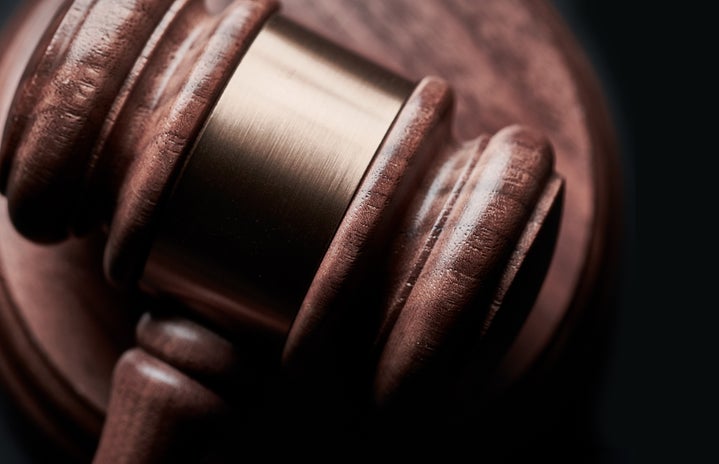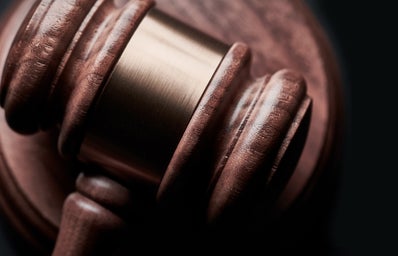With the confirmation of Amy Coney Barrett into the Supreme Court this month, the country looks ahead at the possibly bleak future of women, the LGBTQ+ community and POC communities in the hands of a now-conservative majority Supreme Court. Several big rulings will await their fates in the coming months and years that could affect hundreds of thousands of people. Justice Alito gave a 30-minute speech last week highlighting a growing concern for conservatives: freedom of speech is not being upheld in a modern society where people are in fear of being labeled bigots. The inflammatory tone of the speech left a sour feeling in many of our stomachs, as it opens the door for a potential revisit of basic human rights that have been previously guarded by Supreme Court rulings like same-sex marriage, abortion and anti-discrimination policies. He spoke out against a Washington law that allowed pharmacies to fill prescriptions for morning-after pills and claimed it is aiding in killing embryos. While many are not necessarily surprised at his comments, the real surprise came that he felt empowered enough to talk at length about these topics in a livestream for millions to see. It’s got people wondering if this outspokenness comes from the new solid grip conservatives have in the Supreme Court.
It won’t be long until we get to see what is coming since the Supreme Court heard the case of Fulton vs City of Philadelphia last week. The case is about Philadelphia refusing to renew its contract with the Catholic Social Services due to the organization not working with same-sex couples. While the ruling has not come out, based on Justice Alito’s comments, religious liberty will carve out new ground for conservatives to make exceptions for civil rights protections in the upcoming years. This concern was highlighted in the 2015 dissent opinion by Justice Clarence Thomas where he stated that the majority decision to make same-sex legal undermined religious liberty.
The ruling is expected to come out by June of 2021 which will mark the six year anniversary of the historic Obergefell vs. Hodges case that legalized same-sex marriage. Due to the complexity of the case, the ruling might turn out disappointing for both sides but everyone will be anticipating Amy Coney Barrett’s position on LGBTQ+ rights. It could set a precedent for future cases involving religious organizations and their stance on LGBTQ+ rights.
While running for office, Trump claimed that Roe v Wade could be overturned with pro-life justices in the Supreme Court. Three nominations later, his promise could be a reality as two abortion-related cases reached the Court recently. The first case is about Mississippi’s 15-week abortion ban which at its core goes against Roe v Wade that legalized abortion until the 24th week of pregnancy.
The second case is about a Title X change that would ban health centers like Planned Parenthood that perform and/or refer patients for abortion services and birth control. Although Barrett has claimed her personal views don’t influence her decisions on cases, she has ruled in favor of abortion restrictions as a judge. Undermining Roe v Wade and even overruling it has been a goal for conservatives since its ruling came out more than 40 years ago. It has been chipped away at over the years as there have been more than 450 laws passed throughout the country to place restrictions on abortion. Alabama’s “Human Life Protection Act” criminalizes abortion even in instances of rape and incest which is in direct opposition of Roe v Wade. The law was blocked by a district court which is a first step in the road to heading to the Supreme Court, so we could anticipate having the Court hear it in a couple of years.
Everywhere we look, there are cases of abortion prohibition that could make their way to the Court: around 17 cases to be exact. Several states have passed laws that ban abortion at various points in a woman’s pregnancy like Georgia’s 6-week ban, Missouri’s 8-week ban and North Carolina’s 20-week ban. It won’t be long until we get to see if and how Roe v Wade will be undermined in the overpowering conservatice Court.
Native American sovereignty will also be a hot topic debated in the judicial system, as the ruling from this year that confirmed what many were hoping—the land we live on is still tribal land. In a landmark ruling this summer, the Court ruled in favor of Native Americans by declaring that a Seminole man in Oklahoma should have been tried in the Federal system and not the state system. The Court also stated that half of the land in Oklahoma is tribal land. This ruling was deemed a win for Native Americans as it could give them more leverage in fighting for environmental protections and resources.
With the upcoming presidency of Biden, there are some unanswered questions about packing the Court with more liberal justices in the fight to keep human rights safeguarded. Changing the historic 9 seats by adding more would be an unprecedented move that would face huge backlash from conservatives. We’ll have to wait until January to start seeing glimpses of what that future would look like and we might have to wait even longer to start seeing any change materialize. Until then, we can just hold out hope and keep organizing to fight for each other’s rights.


